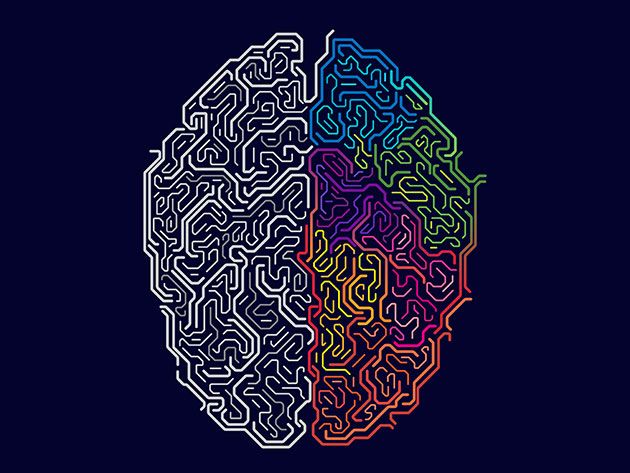Every year there are numerous symposiums on autism, often featuring famous speakers like Temple Grandin, Stephen Shore, Tony Attwood and others who describe the evolving picture of neurodevelopmental disorders, or as many call them, conditions of neurocognitive variability. As a clinical neuroscientist working with individuals and their families, I am both impressed and frustrated with discoveries in neurodevelopmental science. For example, autistic spectrum disorders (ASD’s) continue to rise (1 in 36 according to the CDC, 1 in 100 according to the WHO) becoming one of the most common disorders in children. Despite impressive levels of research and attention there is currently no theory or physical evidence to demonstrate a causal chain that leads from any specific factor to ASD. It is diagnosed purely by a person’s behavior, which varies depending on many things, including the observer.
Clinicians are continuously faced with a variety of challenges. Societal changes, disease and typical life stressors impact families and individuals giving rise to symptoms and disorders we treat with a variety of modalities. Yet even the most severe conditions such as schizophrenia and bipolar disorders, can improve with psychotherapy. Unfortunately, due to the difficulty in making a close, lasting connection with ASD clients, psychotherapy is often not as effective and can take longer than with non-ASD clients. So, at the same time we are seeing a rise in the number of people with ASD, there is an increasing need for an effective approach that all clinicians can apply, since we are increasingly likely to face this challenge directly or through the impact to a client’s family.
So, what psychotherapy works best for ASD? There have been several approaches with children: Applied Behavioral Analysis (ABA), Floortime , Miller Method, Verbal Behavior, TEACCH, Daily Life Therapy and Relationship Development Intervention (RDI). There are several more recent techniques as well. None of these methods claims to cure ASD’s, they only improve functioning and reduce symptoms. Traditional psychotherapy has been shown to be somewhat successful and, in some cases, counterproductive. As a result the behavioral techniques have dominated. Some critics, though, have pointed out that the main approaches are really only behavioral controls that do not alter the fundamental deficit that ASD’s present.
So, what are we left with? Clearly applying good standards of care will produce improvement in a person’s functioning and well-being. Nutritional health, the use of supplements and medications when needed, behavioral techniques and common-sense approaches to problems unique to ASD clients and families will likely reduce the stress and impact of ASD. Psychotherapy, though not as effective as with other populations does provide an essential aspect of treatment. Because of the capacity of clinicians to model appropriate relationship behavior the capacity to distinguish competent social cues is demonstrated and frequently incorporated into the inventory of abilities of people with ASD.
Also, what if we approached the care of ASD as just a larger variation in neurocognition? This perspective may lead to a better and more scientifically sound approach if we apply it as way to establish relative strengths and limits in each person. To do this requires that we use math and science to solve the problem, that is, we measure the person’s emotions before and after each encounter, much as we would measure blood chemistry before and after a medical intervention. In this way we can determine if there is any neurocognitive impairment and if so, use neurocognitive training to improve someone’s personal development.
A cure or prevention for ASD may be a long way off. Because no single genetic factor contributes more than about 1% to the probability of having a ASD there is little chance of gene therapy anytime soon. For the increasing number of adults with ASD there is likely to be a lifetime of struggle. Fortunately, we can provide good standards of care with psychotherapy, thus improving the quality of life for ASD clients and their families, a standard for all of our clients. All we need to do is measure and use that information. That is the purpose behind neurocognition’s meaning.
Stephen Wolfson, PhD
Dr Wolfson is a clinical neuroscientist practicing in Sydney AU and who sees clients all over the world. His research is in diagnostic EEG complexity analysis and app-based affect measurement(online emotional wellness tools) to improve clinical outcomes. He is available at [email protected]
The Neurocog System provided answers to all of these questions related to emotional well-being by downloading the Neurocog App. The Neurocog System can be used for skills-based or goal-based personal development. You will benefit from decades of clinical training and experience in both public and private settings in a variety of countries. There is a pragmatic approach to personal development that emphasizes internal regulation, resilience, and cognitive abilities. By providing direct or indirect guidance, the Neurocog System provides a rapid improvement in awareness, cognition, and affect control. It is possible to build upon a skill-set by networking with others in order to achieve greater levels of success and reduce stress. The Neurocog integration and technology-based tools are continually being expanded to provide greater levels of capability in order to meet the needs of our users.


